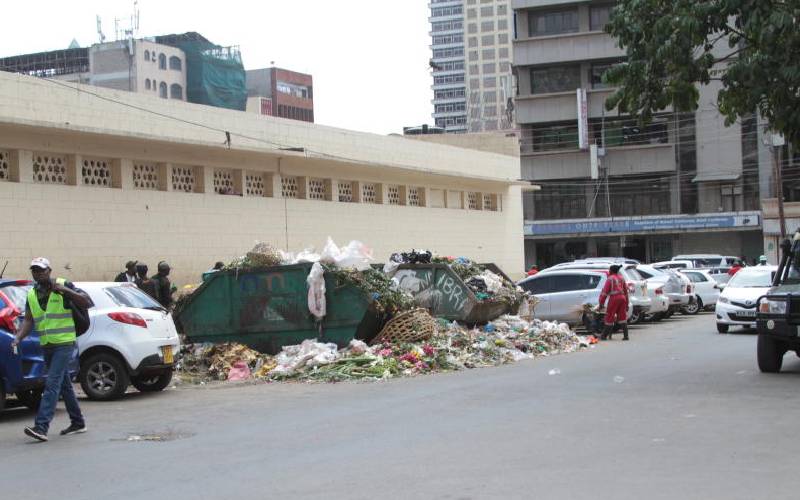×
The Standard e-Paper
Kenya’s Boldest Voice

The once green city in the sun is now a pale shadow of its former self.
Nairobi is fast becoming filthy, with heaps of garbage and smelly raw sewer oozing from many corners.






